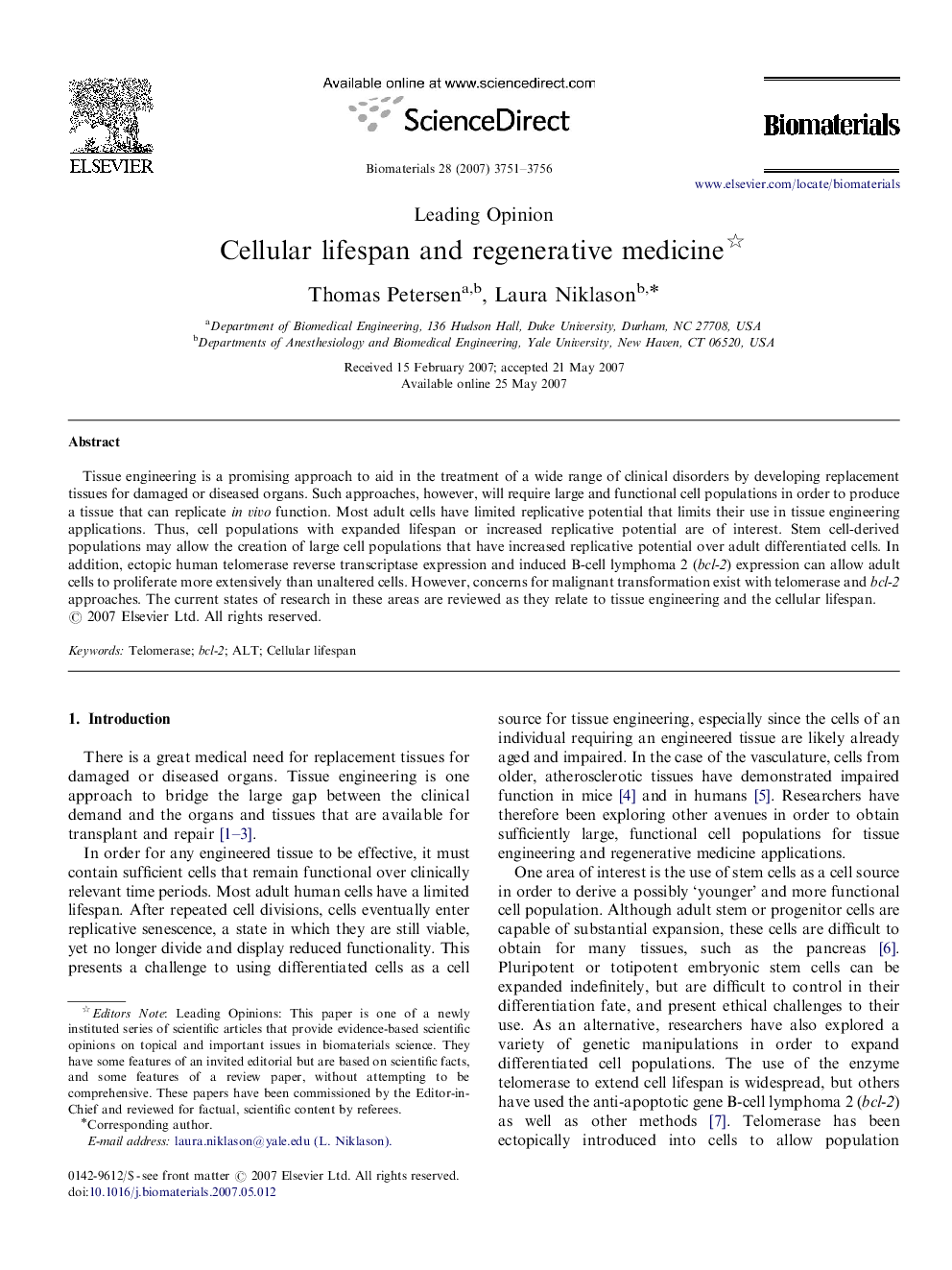| Article ID | Journal | Published Year | Pages | File Type |
|---|---|---|---|---|
| 10451 | Biomaterials | 2007 | 6 Pages |
Tissue engineering is a promising approach to aid in the treatment of a wide range of clinical disorders by developing replacement tissues for damaged or diseased organs. Such approaches, however, will require large and functional cell populations in order to produce a tissue that can replicate in vivo function. Most adult cells have limited replicative potential that limits their use in tissue engineering applications. Thus, cell populations with expanded lifespan or increased replicative potential are of interest. Stem cell-derived populations may allow the creation of large cell populations that have increased replicative potential over adult differentiated cells. In addition, ectopic human telomerase reverse transcriptase expression and induced B-cell lymphoma 2 (bcl-2) expression can allow adult cells to proliferate more extensively than unaltered cells. However, concerns for malignant transformation exist with telomerase and bcl-2 approaches. The current states of research in these areas are reviewed as they relate to tissue engineering and the cellular lifespan.
